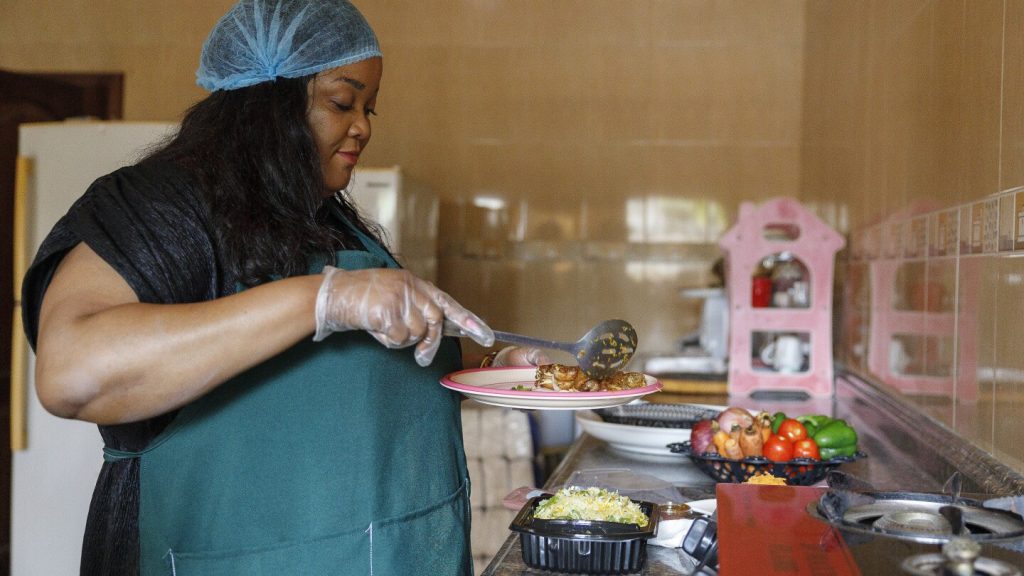Anita Akpeere, a restaurant owner in Ghana, relies heavily on her smartphone for running her business. In sub-Saharan Africa, where infrastructure and public services are lacking, technology has played a unique role in bridging gaps. However, despite the growing mobile internet coverage in the continent, only 25% of adults in sub-Saharan Africa have access to it due to the high cost of smartphones. Additionally, low literacy rates and lack of services in local languages further hinder the adoption of smartphones for some individuals.
In an effort to address the digital gap in Ghana, Uniti Networks offers financing to make smartphones more affordable and provides coaching to help users navigate its platform of apps. For example, Cyril Fianyo, a farmer, was able to expand his farming activities by using a smartphone provided by Uniti Networks. He learned to use apps like Cocoa Link, which provide valuable information on planting techniques, weather forecasts, and climate change challenges. The company aims to reach 100,000 users within five years and believes that mobile internet can help address various challenges, including accessing healthcare.
While mobile phones have the potential to have a significant impact in Africa, there is limited evidence that paid health or agriculture apps are benefiting people. Some experts believe that the lack of useful apps and content is a reason why more people in Africa aren’t buying smartphones. Uniti Networks, however, learns from its mistakes and continually works to improve its platform based on user feedback. Despite concerns about data privacy and potential abuses, the company asserts that it only features apps that align with its impact goals, focusing on health, education, finance, and agriculture.
An important point raised by experts is that mobile phones are not a substitute for investment in public services and infrastructure. While technology can provide solutions, it also poses risks such as data privacy concerns. Uniti Networks, as a for-profit business, aims to provide impactful services without targeting vulnerable populations with unnecessary offerings. The company emphasizes that it tracks users on the platform to provide incentives and feedback to app developers while taking steps to protect users’ data from external threats.
The potential for mobile phones to transform education and insurance is highlighted by experts, who believe that increased access to these services could benefit millions in Africa. Mobile phones could help overcome illiteracy and provide protection to those facing challenges from climate change and conflict. Despite the risks involved, the transformative power of technology is seen as outweighing the potential downsides. In Fianyo’s fields, his new smartphone has attracted interest from neighboring farmers, indicating a growing curiosity and potential for technology to enhance various aspects of life in Africa.


